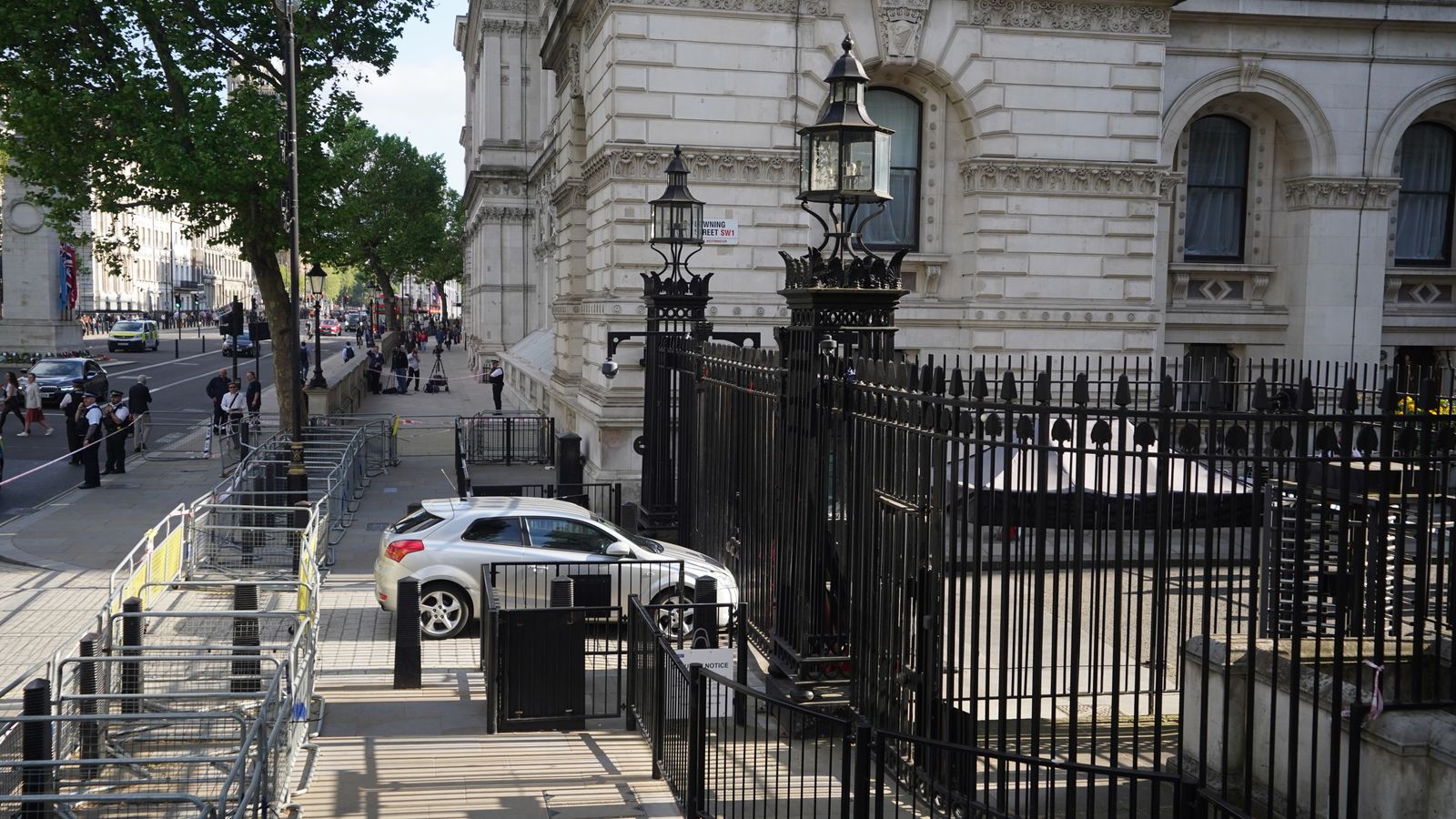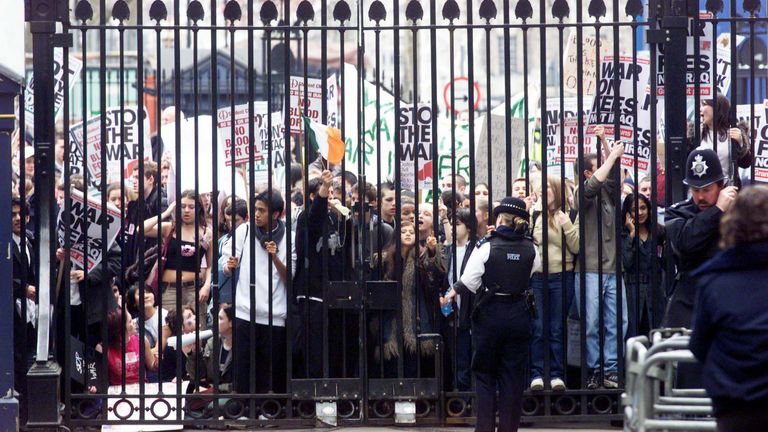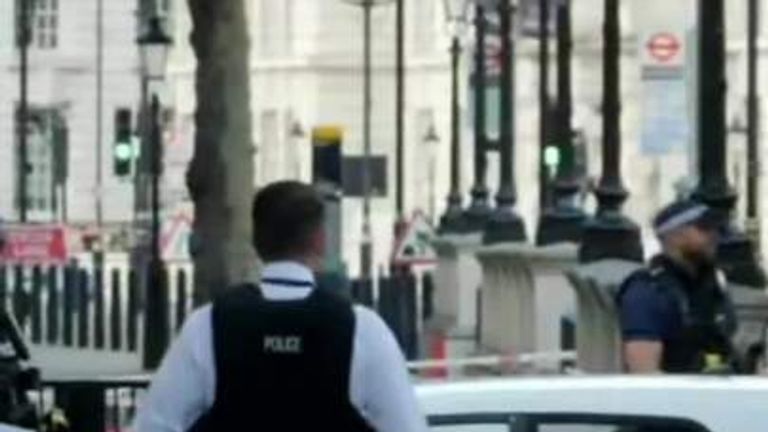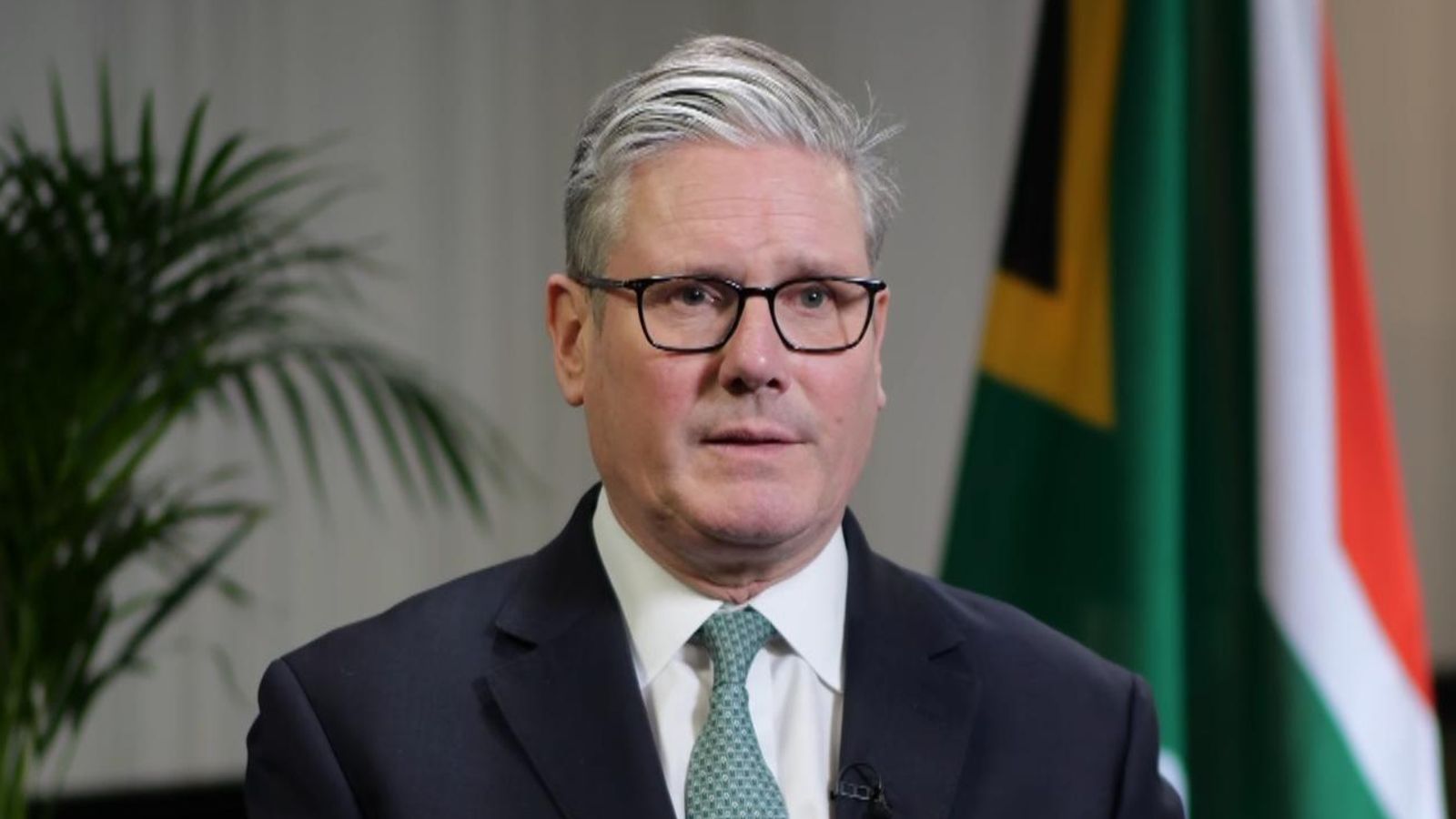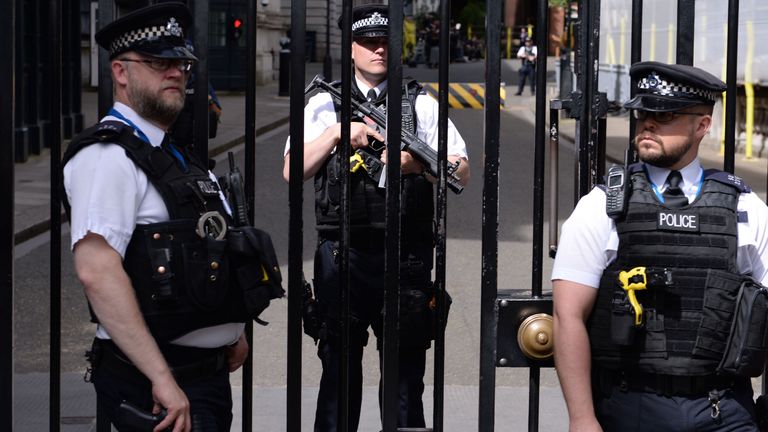
Downing Street is one of the most heavily protected places in the UK.
Barriers were first used to prevent access to the road in 1920 and were periodically removed and reintroduced for the next 69 years depending on the perceived threat level.
However, since 1989 a security checkpoint marked by large black gates at either end of Downing Street has been in place, introduced amid fears of attacks by the IRA.
Following an IRA mortar attack in 1991, security was further tightened.
The street is constantly patrolled by armed police from the diplomatic protection group.
There is also usually at least one police officer stationed outside the door of Number 10.
To get through the gates, people have had to show a pass to one of the officers.
There are also extensive security devices and cameras on the street.
Despite the extensive security, protests outside the gates are still allowed, as it is viewed as an important part of the UK’s democracy.
Read more:
Man arrested after car hits Downing Street gates
However, full details of the protection measures in place around Downing Street and Number 10 have not been made public for security reasons.
In response to a Freedom of Information request regarding security around Downing Street, the Metropolitan Police said: “To disclose details of the number of officers deployed, particularly in relation to a specific site or at a specific time, would provide details of policing tactics and resources used in relation to security and protection operations.
“This would allow those with a criminal or extremist intent to gain an operational advantage over the MPS and therefore undermine the safeguarding of National Security and compromise our law enforcement functions.”

